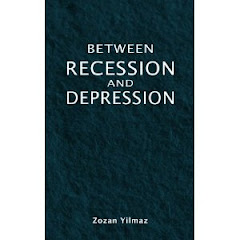The forum is taking place since 27th of January and will finish on the 31st.
It is a good mix of 900 CEOs, government representatives, media, academic professionals, NGOs.
This year there are many different topics on the agenda one of which is "Directing Avatar" -- Conversation with James Cameron.
Interesting to see it among the Economic Forum topics.
Many others with social focus are population growth, social networks, life on other planets, rethinking philanthropy, enrichment through music, economics of happiness.
Friday, 29 January 2010
JAPANESE MIRACLES
Japan has been one of the miracle countries. On a land of nearly 80% of mountains unsuitable for agriculture they still managed to be the ninth largest producer of rice in the world, the main ingredient of their famous sushi. As an island being exposed to tsunamis, earthquakes they managed to build the houses, which can survive the earthquake at magnitude of 8.
Rank of number two in the league of global GDP, forth largest exporter and sixth largest importer plus enormous growth between 1960 and 1980 made the country a role model for the rest of the world in their management concepts such as kaizen (continuous improvement), just-in-time (production upon demand).
After their lost decade of 1990s, and a global world shaken by credit crunch, they are challenged again with an economy of deflation keeping the consumption low, weak earnings keeping investment low, government debt already with over 180% of GDP.
However, Japan managed to bring the exports, the only variable left to play with; in their favour in December 2009 at a level of ¥5.41trillion ($59billion). The country's exports are growing again after 15 months of consecutive fall. Yes, they are very below their peaks considering the fact that it was ¥12.7trillion ($113billion) in November 2007. What matters though is to gain the momentum of growth again.
Can Japan be heading to a new miracle of achieving good growth of GDP despite the challenges of depressed consumption, investment items and a government spending, which is restricted with a cumulatively high debt level and credit rating constraints?
The answer can be “yes”.
Rank of number two in the league of global GDP, forth largest exporter and sixth largest importer plus enormous growth between 1960 and 1980 made the country a role model for the rest of the world in their management concepts such as kaizen (continuous improvement), just-in-time (production upon demand).
After their lost decade of 1990s, and a global world shaken by credit crunch, they are challenged again with an economy of deflation keeping the consumption low, weak earnings keeping investment low, government debt already with over 180% of GDP.
However, Japan managed to bring the exports, the only variable left to play with; in their favour in December 2009 at a level of ¥5.41trillion ($59billion). The country's exports are growing again after 15 months of consecutive fall. Yes, they are very below their peaks considering the fact that it was ¥12.7trillion ($113billion) in November 2007. What matters though is to gain the momentum of growth again.
Can Japan be heading to a new miracle of achieving good growth of GDP despite the challenges of depressed consumption, investment items and a government spending, which is restricted with a cumulatively high debt level and credit rating constraints?
The answer can be “yes”.
Friday, 22 January 2010
JAPANESE AIRLINES
One thing, which can only be seen as “the whole glass is empty” is bankruptcy. It can be quite nostalgic depending on how old the company is. Last year in UK the list of the big names included 100 years old Woolworths, 250 years old Wedgewood. The former being the choice of tight budget customers whereas the latter serving luxury looking customers. Both existed over many generations.
As we are going through 2010’s first month, a new huge one came up from Japanese Airlines, which is Asia’s biggest airline. This is the first bankruptcy of the industry at this scale during this recession. Japanese government’s announcement of protection of creditors provided a relief. And it is a re-reminder of weak earnings considering the liquid nature of the business model.
The reason/s why this is so important will be the subject of my new blog post.
As we are going through 2010’s first month, a new huge one came up from Japanese Airlines, which is Asia’s biggest airline. This is the first bankruptcy of the industry at this scale during this recession. Japanese government’s announcement of protection of creditors provided a relief. And it is a re-reminder of weak earnings considering the liquid nature of the business model.
The reason/s why this is so important will be the subject of my new blog post.
Saturday, 9 January 2010
THE FINANCIAL CRISIS INQUIRY COMMISSION
We are seeing United States initiative for investigations regarding the causes of the recent crisis. We have been discussing, reading about these since 2007 but the commission has put them in a more organized structure under 22 headings ranged from credit rating agencies, global imbalances, corporate governance, derivatives to securitisation.
On the positive side:
1. US determination to lead the exit is persistent
2. A rich mix will be available in hearings from head of top investment banks to regulators and independent experts.
On the question mark side:
Will it cause high public expectations or indifference?
On the positive side:
1. US determination to lead the exit is persistent
2. A rich mix will be available in hearings from head of top investment banks to regulators and independent experts.
On the question mark side:
Will it cause high public expectations or indifference?
Subscribe to:
Posts (Atom)



